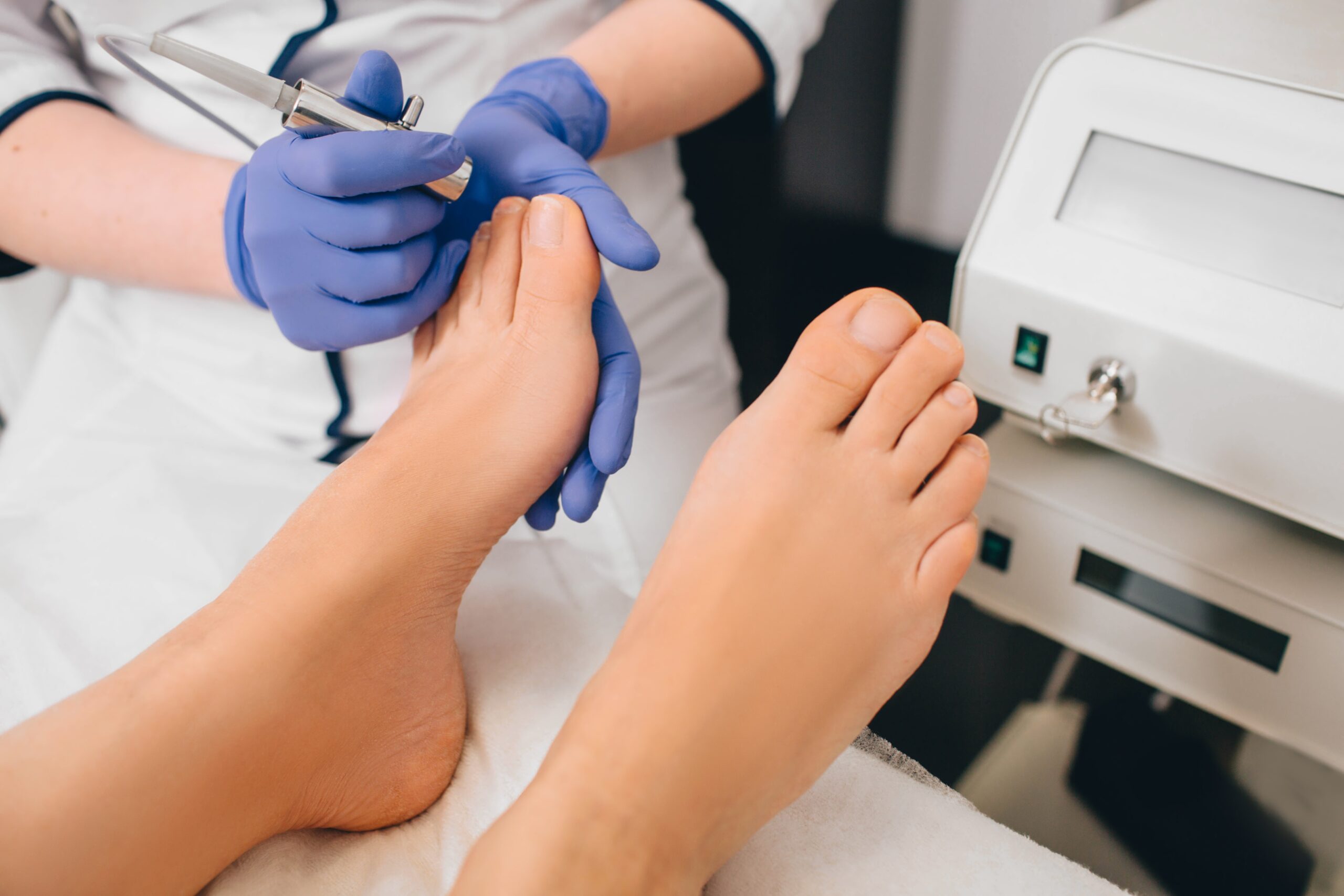 Your feet matter a lot in your life! They directly impact your overall health and quality of life. Diabetes, heart disease, lower back pain, and even emotional difficulties like stress and depression all start in the foot.
Your feet matter a lot in your life! They directly impact your overall health and quality of life. Diabetes, heart disease, lower back pain, and even emotional difficulties like stress and depression all start in the foot.
Here are five recommendations to constantly keep in mind when it comes to foot care.
1. Make sure that you have clean and soft feet by clipping your toenails regularly.
a. Clean your feet by washing them daily, paying special attention to the areas between the toes.
b. Additionally, exfoliate and moisturize your feet every day. Remove dead skin cells with an exfoliating product (such as a foot scrub) or a pumice stone. This will aid in the softening of your skin and the avoidance of calluses.
c. Because the skin on your feet is naturally dry, moisturize them daily – especially after washing, while they are still damp.
2. The second way to look after your feet is to sit down now and then and prop them up.
Weary feet deserve a break. If you’re on your feet all day, take a break and elevate your feet.
a. It will promote circulation and relaxation. Getting a professional foot massage is also good for your feet.
b. If you feel more energized, consider going for a swim. Swimming is beneficial for the entire body, but it is especially beneficial for the feet, as the water supports them.
c. If you must wear high heels or pointed shoes, do so sparingly rather than daily, as they might permanently alter the contour of your feet. Rather than that, choose comfortable shoes that fit well and give arch support.
3. Shoes are your feet’s protector.
When choosing shoes, make sure they are appropriate for the activity. If you’re going for a run or another sport, be sure the shoe’s sole has cushioning or other shock-absorbing features. Wearing the same shoes every day can cause foot deformities.
a. Footwear should not be tight-fitting. Wide and comfortable shoes are more pleasant to wear and provide additional support for your foot.
b. Also, whenever possible, choose socks made of natural fibers like cotton or wool. Synthetic fibers like nylon or polyester suffocate your feet while these materials let them breathe. Textiles like cotton socks provide for better ventilation than synthetics, wicking moisture away from the skin and preventing blisters. Wool socks also keep your feet warm in the winter and cool you in the summer!
4. Inspect your feet and ankles for symptoms of redness, swelling, cuts, or bruising, as well as any other abnormalities.
a. Ascertain your ability to distinguish between hot and cold feelings by first contacting your foot with an ice cube and then with a warm towel. If these feelings become numb or undetectable, you should consult a podiatrist to rule out nerve damage.
b. If you have diabetes, it is critical to take daily care of your feet and ankles. Over time, elevated blood sugar levels can cause nerve damage in the feet and legs. You may begin to lose sensation in your feet and ankles, which might result in unintentional injury.
c. If you have nerve damage, you may experience no pain when something injures your foot or ankle. Unnoticed and untreated injuries can result in significant problems such as infection, therefore it’s critical to inspect your feet daily.
5. Consult your podiatrist regularly.
a. At some point in their life, almost 75% of Americans will encounter foot-related ailments. Fortunately, the majority of these issues are preventable with proper care and treatment.
There are numerous ways to care for your feet; nevertheless, keep the following five suggestions in mind. Additionally, maintain a healthy diet and exercise schedule.
Above all, remember that preventative steps can go a long way toward maintaining healthy feet. With the assistance of your doctor or podiatrist, eliminate risk factors such as stress and smoking, and always wear properly fitting shoes. With a little effort and adherence to a few easy recommendations, you’ll be well on your way to living a healthier lifestyle.
For more information please contact Foot and Ankle Centers today!







